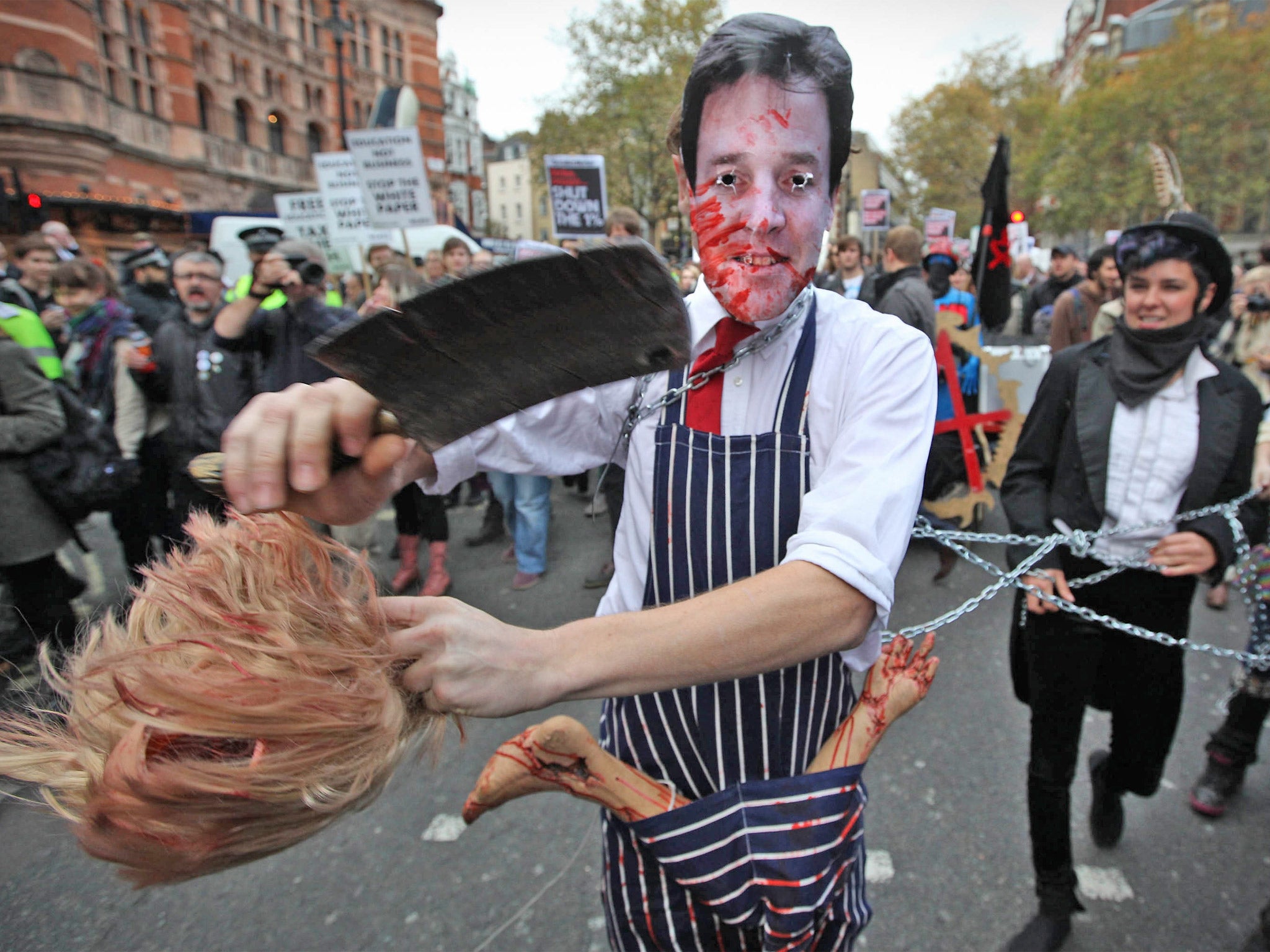And this time we mean it...Lib Dems risk backlash with possible election pledge to cut tuition fees

Your support helps us to tell the story
From reproductive rights to climate change to Big Tech, The Independent is on the ground when the story is developing. Whether it's investigating the financials of Elon Musk's pro-Trump PAC or producing our latest documentary, 'The A Word', which shines a light on the American women fighting for reproductive rights, we know how important it is to parse out the facts from the messaging.
At such a critical moment in US history, we need reporters on the ground. Your donation allows us to keep sending journalists to speak to both sides of the story.
The Independent is trusted by Americans across the entire political spectrum. And unlike many other quality news outlets, we choose not to lock Americans out of our reporting and analysis with paywalls. We believe quality journalism should be available to everyone, paid for by those who can afford it.
Your support makes all the difference.The Liberal Democrats are considering whether to promise to reduce the £9,000 cap on university tuition fees in their manifesto at the next general election.
Senior Liberal Democrats sources told The Independent that the idea is among options being looked at by a working party on higher education policy.
The Government's decision to almost treble the maximum fee to £9,000 a year was the most traumatic one for the Liberal Democrats since the Coalition was formed. At the 2010 election, they pledged to abolish fees, for which Nick Clegg issued a dramatic public apology last September.
Some Liberal Democrats are worried higher fees may be deterring young people from going to university and want their next manifesto to include a plan to set a £6,000 cap, with the government making up an estimated £2bn shortfall in universities' income.
Insiders say the party's decision could be influenced by figures due at the end of this month on the number of student applications. Latest figures from the Universities and Colleges Admissions Service (Ucas) show a drop of 5.6 per cent on the previous year.
But Vince Cable, the Liberal Democrat Cabinet minister responsible for higher education, is thought unlikely to support a lower cap. The Business Secretary believes the Ucas figures suggest that students from disadvantaged backgrounds have not been put off applying to university, partly because the loans covering fees do not have to be repaid until a graduate earns £21,000 a year.
The Liberal Democrats must make a decision on fees because, despite the Coalition's controversial decision, the party's official policy remains to phase them out. Its manifesto will be decided by the party's policy-making machinery rather than imposed by the leadership.
Cutting the ceiling to £6,000 would be difficult for Mr Clegg. It might look like yet another U-turn on an issue that has dogged his party, and finding an extra £2bn for universities might look unrealistic when public spending is being squeezed.
Labour has already proposed reducing the maximum fee to £6,000, with the money raised by reversing the Government's cut in corporation tax for financial services and increasing the interest rate on loans to the highest-earning graduates.
Nicholas Barr, Professor of Public Economics at the London School of Economics, said today that a lower cap would make sense to ensure enough people have a high-quality university education. He believes the Government went too far by ending the taxpayers' subsidy to universities, and says the axed teaching grant should be partially restored.
"What happened was destabilising for the [higher education] sector and, politically, we need to get back to something like a consensus," he said. He had "no doubt" the £9,000 cap was deterring some people from applying.
However, a 2011 study by CentreForum, a think tank with close links to the Liberal Democrats, found a £6,000 cap would be "clearly regressive", providing most help to graduates in their fifties earning £72,500 a year.
David Willetts, the Conservative Universities Minister, told the Commons last September that Labour's proposed £6,000 cap would do nothing for students, nothing for recent graduates because monthly repayments would not be reduced, and provide no help for the poorest graduates, who would be better off under the Government's scheme because they will not have to repay loans in full.
Join our commenting forum
Join thought-provoking conversations, follow other Independent readers and see their replies
Comments